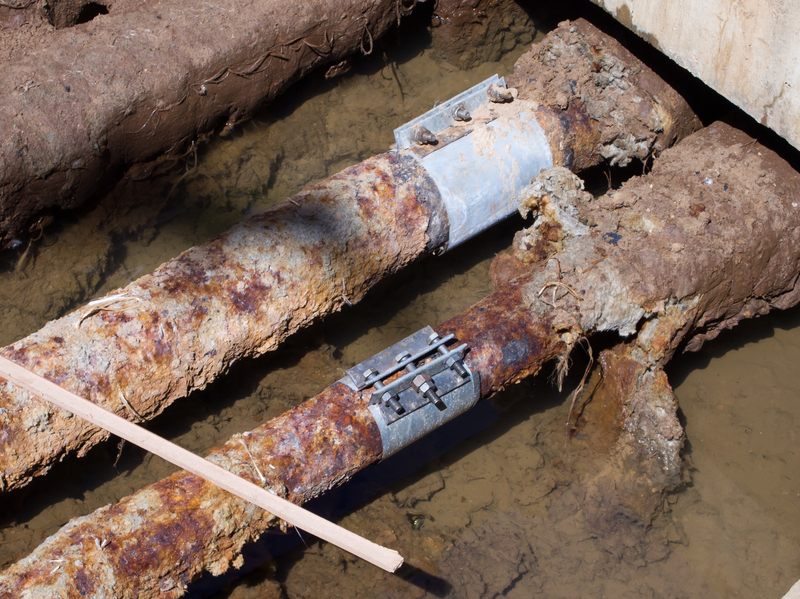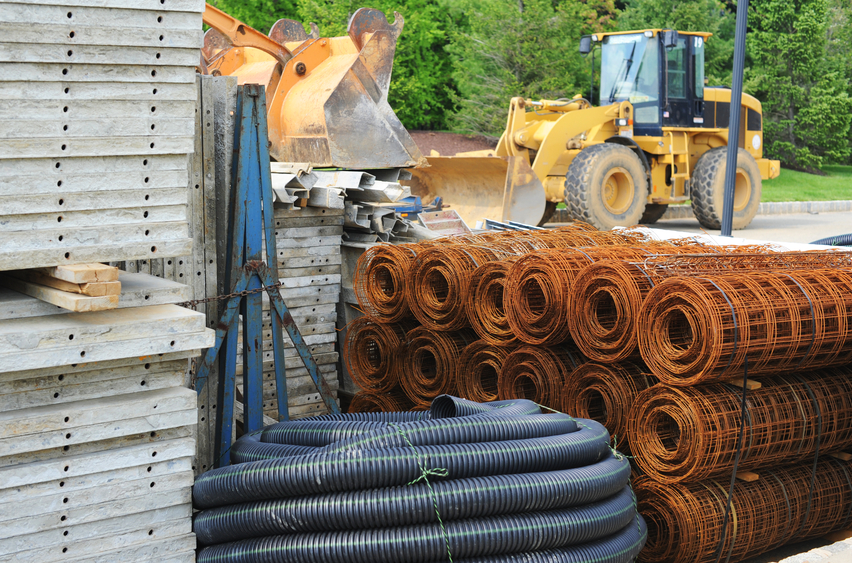New Mexico Materials and Ethics 30 PDH Discount Package 2
Coating Types and Selection (T06-002)
Coating Application and Inspection (T03-001)
Basement Insulation Basics (T03-006)
Lubricants and Hydraulic Fluids - Overview (T04-008)
Nuclear Plant Material Selection and Application (T05-001)
Wood-based Composites and Panel Products (T03-004)
Ethics in Professional Practice (LE2-007)

This online engineering PDH course provides basic information on the chemical interaction taking place during the corrosion process between the environment and the corroding metal. It also describes preventive measure to minimize or control the corrosion process.
Uncontrolled corrosion can cause many serious problems. Corrosion occurs continuously, and every metal in every facility is subject to some type of corrosion. Even though corrosion cannot be eliminated, it can be controlled.
This 4 PDH online course is applicable to chemical and environmental engineers, design and construction personnel, technical staff and facility operators who are interested in gaining a better understanding of the theory of corrosion.
This PE continuing education course is intended to provide you with the following specific knowledge and skills:
- Corrosion theory
- General corrosion
- Crud and galvanic corrosion
- Specialized corrosion
In this professional engineering CEU course, you need to review Module 2, "Corrosion" of the Department of Energy Publication DOE-HDBK-1015/1-93, "Chemistry".
Upon successful completion of the quiz, print your Certificate of Completion instantly. (Note: if you are paying by check or money order, you will be able to print it after we receive your payment.) For your convenience, we will also email it to you. Please note that you can log in to your account at any time to access and print your Certificate of Completion.

This online engineering PDH course presents each type of coating resin or binder categorized by its film-forming mechanism, different types of pigments, and the various solvent families. It also discusses drying oils which are an integral part of some coating formulations, as well as, driers that aid in the drying reaction. Furthermore, it describes miscellaneous additives that are formulated into many coatings for specific purposes. It also provides guidance on powder coatings, thermal spray organic and inorganic coatings, and galvanizing tapes and wraps.
This course also presents a systematic approach to coating selection for new construction and maintenance painting. It details the criteria for selecting a coating system based on the service environment(s), surface preparation requirements, and options for coating application. Finally, it discusses other considerations such as VOC concerns, coating cost, supplier recommendations, ease of application, and maintainability.
This 6 PDH online course is applicable to engineers, design and construction personnel, and other technical professionals who are interested in gaining a better understanding of coating types, characteristics and selection.
This PE continuing education course is intended to provide you with the following specific knowledge and skills:
- Familiarizing with the various types of film-forming mechanisms
- Understanding how resins (binders) are formed and their underlying pigments
- Learning about drying oil coatings and their corresponding driers
- Understanding the function of solvents in coatings
- Learning about the various additives and their purposes
- Understanding zinc-rich coatings vs. powder and their applications
- Understanding the environmental impacts of volatile organic compounds
- Understanding the process of thermal spray and galvanized coatings
- Learning about how to protect piping and tubular structural shapes with tapes and wraps
- Determining the criteria for selecting a coating system
- Understanding the degree of exposure to atmospheric elements
- Selecting coating systems for ferrous components in fresh water vs. seawater
- Selecting coating systems for black iron and steel pipes
In this professional engineering CEU course, you need to review Chapters 4 and 5 of the "Painting: New Construction and Maintenance" engineering manual, published by the United States Army of Corps of Engineers (USACE), Publication Number EM 1110-2-3400.
Upon successful completion of the quiz, print your Certificate of Completion instantly. (Note: if you are paying by check or money order, you will be able to print it after we receive your payment.) For your convenience, we will also email it to you. Please note that you can log in to your account at any time to access and print your Certificate of Completion.

This online engineering PDH course presents the technologies, techniques, advantages and limitations, equipment, typical coating types involved, and safety considerations for each type of application method.
The choice of an application method depends on the type of coating to be applied, the type and size of surface to be coated, and governing environmental regulations. There are various methods of coating application, including brush application, roller application, conventional spray, high volume-low pressure spray, airless spray, plural component spray, and electrostatic spray.
Approximately 85 percent of all premature coating failures are a result of poor surface preparation, inadequate mixing, thinning, and/or poor coating application. Onsite quality control inspection during surface preparation and coating application procedures can help prevent failures of these types. Proper inspection techniques must be combined with knowledgeable instrument use, good common sense, and thorough documentation of work activities and inspection checkpoints to help ensure specification compliance. The amount of inspection and the specific inspection checkpoints will vary with the type and size of the coating project. This course presents eleven quality control inspection procedures as follows:
- Pre-surface preparation inspection
- Ambient conditions
- Compressed air cleanliness
- Surface profile
- Surface cleanliness
- Paint storage, mixing, and thinning procedures
- Application techniques
- Wet and dry coating thickness
- Pinhole detection
- Adhesion
- Cure
This 3 PDH online course is applicable to engineers, design and construction personnel, and other technical professionals who are interested in gaining a better understanding of coating application and inspection.
This PE continuing education course is intended to provide you with the following specific knowledge and skills:
- Methods of coating application
- Documentation of coating applications
- Pre-surface preparation inspection
- Measurement of ambient conditions
- Assessment of compressed air cleanliness
- Measurement of surface profile
- Evaluation of surface cleanliness
- Paint storage, mixing, and thinning
- Measurement of wet coating thickness
- Nondestructive measurement of dry coating thickness
- Destructive measurement of dry coating thickness
- Cleanliness and time (cure) between coats
- Holiday/pinhole detection
- Adhesion testing and evaluation
In this professional engineering CEU course, you need to review Chapters 8 and 9 of the “Painting: New Construction and Maintenance” engineering manual, published by the United States Army of Corps of Engineers (USACE), Publication Number EM 1110-2-3400.
Upon successful completion of the quiz, print your Certificate of Completion instantly. (Note: if you are paying by check or money order, you will be able to print it after we receive your payment.) For your convenience, we will also email it to you. Please note that you can log in to your account at any time to access and print your Certificate of Completion.

This online engineering PDH course describes the good practices for insulating basements in new and existing homes.
There are many considerations to account for when making decisions about insulation. Costs, codes, energy efficiency, pest control, moisture management; the list goes on. Coupled with the large variety of insulation options including mineral fiber, mineral wool, foam boards, foam sprays, polyisocyanurate, etc., it is important to be aware of what options best suit a project’s particular conditions.
Codes are also constantly changing. While it is beyond the scope of this course to provide a comprehensive view of all basement insulation codes, it does discuss many common codes relevant to basement insulation projects, as well as changes to codes in recent years.
This 3 PDH online course is applicable to engineers, energy professionals and construction personnel who are interested in gaining a better understanding of basement insulation applications.
This PE continuing education course is intended to provide you with the following specific knowledge and skills:
- Understanding what considerations should be taken into account when looking at basement insulation options
- Familiarizing with the variety of insulation options
- Understanding the problems associated with the choice of insulation
- Familiarizing with codes which must be met for projects involving basement insulation
Upon successful completion of the quiz, print your Certificate of Completion instantly. (Note: if you are paying by check or money order, you will be able to print it after we receive your payment.) For your convenience, we will also email it to you. Please note that you can log in to your account at any time to access and print your Certificate of Completion.

This online engineering PDH course describes the basic principles, characteristics, properties, and applications of different types of lubricating oils.
This course is intended to be a practical guide to lubrication with enough technical detail to allow personnel to recognize and easily discern differences in performance properties specified in manufacturers' product literature so that the proper lubricant for a particular application is selected.
This 4 PDH online course is applicable to engineers, design and construction personnel, and other technical professionals who are interested in gaining a better understanding of lubricants.
This PE continuing education course is intended to provide you with the following specific knowledge and skills:
- Understanding the definition of friction and mechanisms of wear
- Understanding the basic principles of lubrication
- Learning about the different types and characteristics of lubricants
- Familiarizing with the applications of lubricants
- Learning about the basics of the lubrication oil and the production methods
In this professional engineering CEU course, you need to review Chapters 2 through 4 of the "Lubricants and Hydraulic Fluids" engineering manual, published by the United States Army of Corps of Engineers (USACE), Publication Number EM 1110-2-1424, dated January 29, 2016.
Upon successful completion of the quiz, print your Certificate of Completion instantly. (Note: if you are paying by check or money order, you will be able to print it after we receive your payment.) For your convenience, we will also email it to you. Please note that you can log in to your account at any time to access and print your Certificate of Completion.

This online engineering PDH course addresses commonly used nuclear plant materials and the characteristics desired when selecting material for such use. It also discusses some of the considerations used in the selection process including material properties, fuel, fuel cladding, reflector material, control materials, and shielding materials.
During the selection and application of materials used for construction of a nuclear facility, many different material properties and factors must be considered depending upon the requirements for each specific application. Generally, these consist of both non-fuel reactor materials, used for structural and component construction, and fuel materials.
This 5 PDH online course is applicable to mechanical and plant engineers, construction and design personnel, technical staff and facility operators who are interested in gaining a better understanding of plant material selection and use.
This PE continuing education course is intended to provide you with the following specific knowledge and skills:
- Properties considered when selecting plant materials
- Fuel materials
- Cladding and reflections
- Control materials
- Shielding materials
- Nuclear reactor core problems
- Plant material problems
- Atomic displacement due to irradiation
- Thermal and displacement spikes due to irradiation
- Effect due to neutron capture
- Radiation effects in organic compounds
- Reactor use of aluminum
In this professional engineering CEU course, you need to review Module 5, "Plant Materials" of the Department of Energy Publication DOE-HDBK-1017/1-93, "Material Science".
Upon successful completion of the quiz, print your Certificate of Completion instantly. (Note: if you are paying by check or money order, you will be able to print it after we receive your payment.) For your convenience, we will also email it to you. Please note that you can log in to your account at any time to access and print your Certificate of Completion.

This online engineering PDH course is intended to provide an understanding of the different types of wood-based composites and panel products and the different processing considerations for these products.
Wood properties vary greatly among species, between trees of the same species, and between pieces from the same tree. Because of this variation, solid wood cannot match reconstituted wood in the range of properties that can be controlled in processing.
This 3 PDH online course is applicable to structural engineers, design and construction professionals, and other technical personnel who are interested in gaining a better understanding of wood-based composites and product panels.
This PE continuing education course is intended to provide you with the following specific knowledge and skills:
- Understanding adhesive considerations
- Understanding plywood processing and manufacturing considerations
- Learning about particle and fiber composites
- Learning about wood-nonwood composites
In this professional engineering CEU course, you need to review Chapter 10, Wood-based Composites and Panel Products of the General Technical Report FPL-GTR-113, "Wood Handbook - Wood as an Engineering Material" published by the Forest Products Laboratory, USDA Forest Service (issued March 1999).
Upon successful completion of the quiz, print your Certificate of Completion instantly. (Note: if you are paying by check or money order, you will be able to print it after we receive your payment.) For your convenience, we will also email it to you. Please note that you can log in to your account at any time to access and print your Certificate of Completion.

In this online engineering PDH course, background on the philosophical models that guide ethical behavior is discussed and then applied to specific situations in engineering codes of ethics. This course is based on the American Society of Mechanical Engineers Professional Practice Curriculum, Volume 8, Section: Engineering Ethics.
Many engineering organizations have drafted codes of ethics to which their members are required to commit. Generally, these codes are quite similar and are based on a few fundamental principles which provide guidance to professional engineers in common situations. Nevertheless, there are many difficult or ambiguous situations in which the best ethical solution is difficult to determine.
This 2 PDH online course is intended primarily for engineers seeking to learn ethical principles and how to apply them to their professional practice.
This PE continuing education course is intended to provide you with the following specific knowledge and skills:
-
Determining ethical behavior using several philosophical models
-
Evaluating a practical situation in terms of a professional code of ethics
-
Identifying situations that represent conflicts of interest and formulate a proper response
-
Applying the standards of professional ethics in technical communication
-
Recognizing environmental impacts of engineering work
-
Considering principles of sustainable development in the performance of professional duties
In this professional engineering CEU course, you need to review "Ethics in Professional Practice" published by the American Society of Mechanical Engineers (ASME). (This course document is reproduced by permission of the ASME (www.asme.org). You may also download from or view this course document on the ASME's website by clicking on Ethics in Professional Practice).
Once you complete your course review, you need to take a multiple-choice quiz consisting of fifteen (15) questions to earn 2 PDH credit. The quiz will be based on this ASME publication.
Upon successful completion of the quiz, print your Certificate of Completion instantly. (Note: if you are paying by check or money order, you will be able to print it after we receive your payment.) For your convenience, we will also email it to you. Please note that you can log in to your account at any time to access and print your Certificate of Completion.